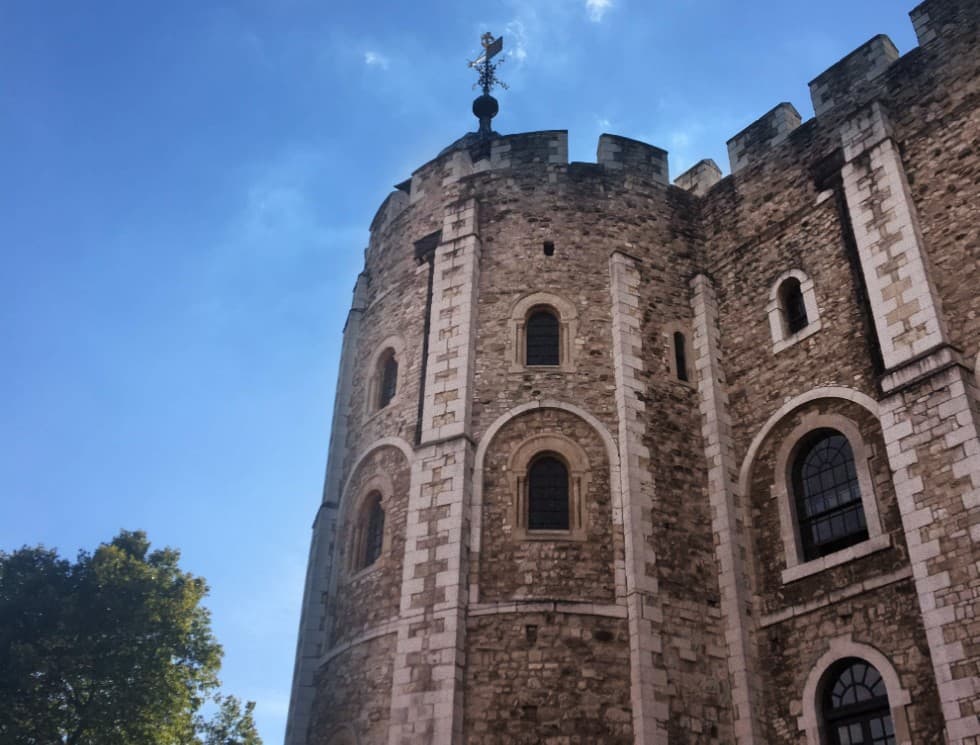Across The Pond Pt. 2: The Salt Tower

It was the Fall of 2018, and I had come from Gonzaga University in the U.S. to study for a semester at Queen Mary University London. Our long-awaited day of sightseeing had finally come, and I found myself exploring the Salt Tower at the Tower of London.
My footsteps made a horrible dull smacking sound that made me grimace as I shivered and crossed the threshold of the Salt Tower, a small, dingy place of imprisonment at the Tower of London in the 13th century.
Tall, narrow walls of grey stone confronted me unforgivingly as I stared dolefully at them, barely able to fathom how someone could survive even a day in this claustrophobic, godforsaken space. Dismal and overwhelmingly gray, the walls glared coldly back at me, but I noticed something in their stares.
They were carvings, weathered and faded over thousands of years, barely legible. I leaned forward earnestly and squinted fiercely, determined to discover who the prisoners were and how they expressed themselves while in such a dark place. Faintly, I made out the phrase “ad majorem dei gloriam.” Strangely, it had a familiar ring to it. I glanced to another nearby carving and saw another symbol I recognized, an IHS with sun rays beautifully swirling from the elegantly scraped letters. Where had I seen them before? Suddenly, a vision of the entrance to College Hall at my home university flashed through my mind, the same Latin phrase inscribed in concrete looming over our heads daily as we head to class: for the greater glory of God. I then recalled seeing the sun image on several Gonzaga advertisements, symbolizing the Jesuit order.
The revelation struck my heart as I realized what these carvings really meant even in the most literally and figuratively darkest moments of their lives, these Jesuit prisoners turned to God first, even though that was the very thing that had landed them in this dank hell. Even while imprisoned, their every action, every artful expression, was for the greater glory of God. I couldn’t help but think about what I would have scrawled on the wall had I been in their position, probably a “help,” a sad face, or even “God, why did you leave me?” Filled with resolve, I vowed to face future problems like these wise Jesuit prisoners—turning to God before turning inside myself.
However, I knew deep inside that I could not hold my perfectionist self to such a high standard. Even major biblical figures, especially the Psalmist, heavily lamented the problems they faced, begging God to end their struggles often with intense, desperate imagery. For example, the Psalmist seeks God’s attention when pleading,
“Lord, how many are my foes! How many rise up against me! Many are saying of me, ‘God will not deliver him.’”
Psalm 3:1-2 NIV
While abroad, I found myself complaining similarly when problems like submitting my essay late, not being able to secure a doctor’s appointment, and being broken up with over text just seem to pile up. However, the Psalmist ends his bewailing by asserting God’s control over the situation:
“But you, Lord, are a shield around me, my glory, the One who lifts my head high.”
Psalm 3:3 NIV
Inspired by the Psalmist and the Jesuit priests who leaned on God in every situation, I strove to do the same as I continued to adjust to living in a new place. Having been home for about a year now, this perspective has changed the way I approach life and I continue to turn to God for support as I complete my final year of university.
To see more of Kaylee’s work, please visit her blog at bigworldtinydancer.com and follow her on Instagram @bigworldtinydancer
Have a story to share? Contact us. featherpen-blog@hotmail.com Also, don't forget to follow us on Instagram! @featherpenblog